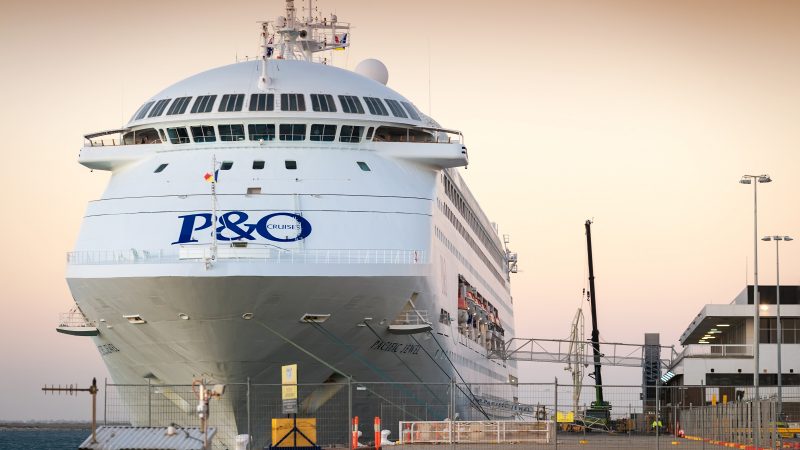
In the aftermath of the P&O Ferries redundancy scandal, Transport Secretary Grant Shapps went on the morning media round, criticising the company and its owners, DP World, for the decision to move instantly to a contracting-out model without notice and in doing so declare 800 workers redundant. P&O did not consult its employees, their unions or the government, despite legal requirements to do so. (That said, it transpired that Shapps and his colleagues at the Department for Transport did have notice of what was coming the day before, and DP World has claimed that Shapps was also warned by weeks earlier of changes at P&O.)
It was striking to hear Shapps profess shock and dismay at P&O’s use of a “loophole” in order to take the action it did. He was referring to the offshore registration of the P&O vessels in question, with those ferries being registered (or “flagged”) in Cyprus as a means to sidestep the application of UK employment laws. The laws in question include the minimum wage, with the staff on the newly contracted-out service being paid outrageous rates – £1.81 per hour according to the RMT union or £5.50 per hour according to P&O.
It is very doubtful that Shapps was genuinely surprised at the registration of P&O’s vessels in Cyprus: ship owners and operators use “flag of convenience” registration all the time; it is a well-established practice in the industry. Rather like offshore corporate registration or the fiction of personal offshore tax domiciles, using flags of convenience (in places like Panama, Liberia, Bermuda, Malta and the Marshall Islands) is routine. It is done to avoid tax, to hide ownership and to evade domestic regulation on the rights of workers, environmental protection, seaworthiness etc. Which is to say, what happened to the 800 P&O workers is not an aberration – it is the point of the flag of convenience system that owners and operators can behave in precisely that manner.
One imagines that DP World is surprised to be criticised by a British Tory minister for using the flag of convenience system as it was designed. And indeed, Shapps’ tears look very crocodile-like, performative even. If he is serious about wanting to close what he calls a loophole – even though it isn’t a loophole at all – he should speak to the International Transport Workers’ Federation (ITF). That international union has worked for decades to protect seafarers, who are uniquely vulnerable, given that most of their work is done on the high seas and not in the territorial waters of any state. The ITF understands perfectly well the threat that flags of convenience present to workers and others, and it has been campaigning for such arrangements to be ended.
The ITF wants there to be a “genuine link” between the real owner of a vessel (i.e. the ultimate beneficial owner) and the flag the vessel flies. So, for example, a ferry operating on a France-UK route and owned by a British company would be registered in the UK. Had that been done in the P&O case, the P&O directors wouldn’t have been able to do what they did to those 800 workers this week.
The ultimate, industry-wide solution lies in the form of an international agreement to reform the regulation of the shipping industry at the international level. But even in advance of such a complex objective being achieved, the UK government could take action to ban the use of flags of convenience on ships used as ferries on routes to and from the UK. And it wouldn’t take much to extend such limitations to other areas of shipping activity within the UK’s territorial waters.
Just as the invasion of Ukraine has brought into focus how our banking, legal and commercial systems have been too amenable to kleptocrats and oligarchs, so P&O and DP World have shown how there is a problem with the use and abuse of flags of convenience. These problems stem from having an excessively permissive environment for ship registration. The solution is quite simple: end the use of flags of convenience.




More from LabourList
‘The hope that kills you’: Reflections from the final day in Gorton and Denton
MPs, union leaders and organisations react to ‘bruising’ Gorton and Denton result
A gory night for Labour